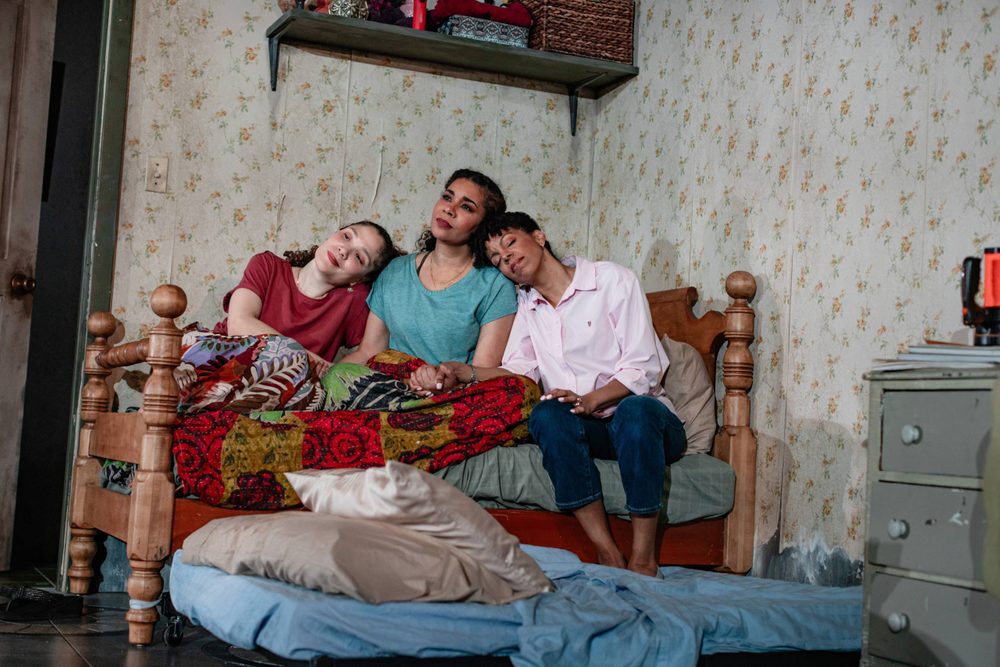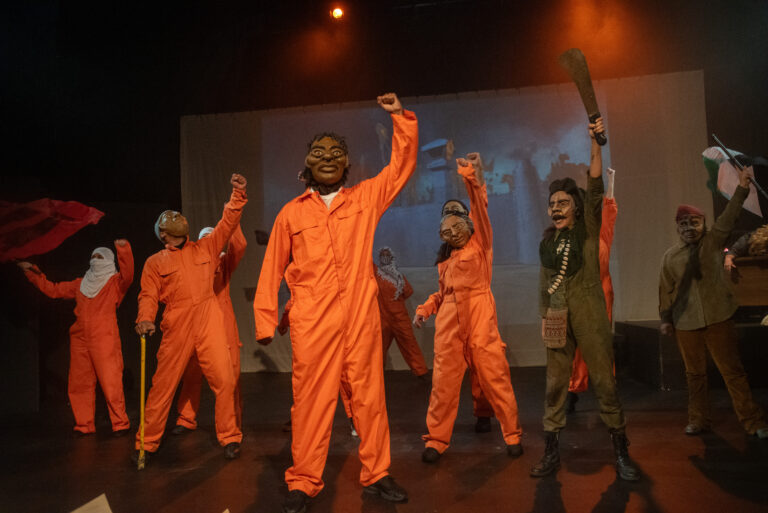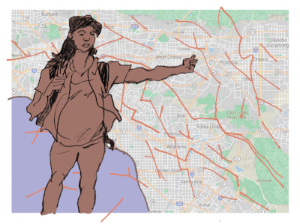
Left to right: Evelyn Howe, Jessica Pimentel, Yesenia Iglesias; photo by Marc J. Franklin.
Written by Ricardo Pérez González
Directed by David Mendizábal
Featuring: Jessica Pimentel, Yesenia Iglesias, Evelyn Howe, Susanna Guzmán, José Ramón Rosario
Voice of Radio: José C. Massó III
Fight Director and Intimacy Coach: Ted Hewlett
March 26 – April 27, 2025
The Huntington Calderwood
527 Tremont Street. Boston, MA 02116
Content warnings: Don’t Eat the Mangos includes frank discussion of past sexual assault, incest, and traumatic forced abortion. The play includes depictions of patriarchal control in a family setting, at-home end-of-life care, and violent suffocation. There is a brief discussion of suicide and the inclusion of homophobic and sexist slurs.
This play is performed in English and Spanish.
BOSTON — After the first seeing the striking mango tree (designed by Tanya Orellana with rising sunlight designed by Cha See) burdened with tangibly ripe fruit next to a cozily busy cottage, the audience hears the silence-splitting call of the Puerto Rican coquí frog. (I’ve never been to P.R., but I’ve heard the coquí’s invasive rant from inside my family’s home on Big Island, Hawai’i enough times to recognize the frog’s plaintive call for nonrecreational booty even in my nightmares.)
The sound design by Jake Rodriguez layers the persistent morning call of coquís under the clanging of daily housework in Don’t Eat the Mangos’ first moments. Shortly after the first lines of dialogue, a ringing bell joins the coquís call. These sounds, with director David Mendizábal’s staging, plus the tense character work between the actors, indicate that something is not right in this house. Continue reading

